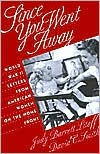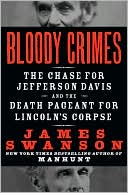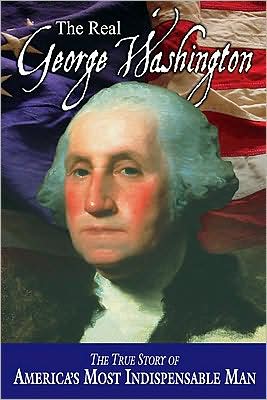Since You Went Away: World War II Letters from American Women on the Home Front
"Last night Mel and I were talking about some of the adjustments we'll have to make to our husbands' return. I must admit I'm not exactly the same girl you left—I'm twice as independent as I used to be and to top it off, I sometimes think I've become 'hard as nails'....Also—more and more I've been living exactly as I want to...I do as I damn please." These tough words from the wife of a soldier show that World War II changed much more than just international politics. Many books have been...
Search in google:
"Last night Mel and I were talking about some of the adjustments we'll have to make to our husbands' return. I must admit I'm not exactly the same girl you left—I'm twice as independent as I used to be and to top it off, I sometimes think I've become 'hard as nails'....Also—more and more I've been living exactly as I want to...I do as I damn please." These tough words from the wife of a soldier show that World War II changed much more than just international politics. Many books have been written about those who fought and suffered in Europe and Asia during World War II, but less is known about the private sphere of women on the home front in the United States. With Since You Went Away, Judy Barrett Litoff and David C. Smith illuminate this hidden corner of our history. Drawn from a large archive of wartime correspondence, Since You Went Away collects hundreds of letters written by women of all backgrounds and ages from all over the United States: from Midwestern farms to the Hawaiian Islands, from young girls to anxious mothers. The letters are sometimes touching, sometimes anguished, and always packed with intimate glimpses of the World War II era. With men on the frontlines, women took to repairing cars, balancing budgets, and responding with imagination to all kinds of hardships and wartime shortages ("I stopped at the Piggly Wiggly but could not get fresh meat of any kind, so found that Spam fried in butter made a very tasty Easter dinner."). An entire section is devoted to courtship, so much of which took place through the mail, and another chapter concentrates on letters written by women about their experiences at work ("The more I see of war plants the more I believe that they're dragging this damn war out as long as possible on purpose...here it seems as tho' they have so much money they don't know what to do with it."). Nor does this collection spare the pain women felt upon learning about the loss of their husbands, lovers, or sons. A pictorial essay gives readers a further window into the war, displaying images, cartoons, and posters. One poster reads: "Be With Him at Every Mail Call," giving an idea of just how important letters were to the men and women of this time. In Since You Went Away we find letters by factory workers, farmers, and nurses, letters written to husbands, brothers, and even a series to General MacArthur. For each thematic section the editors include a brief introduction, and a capsule portrait of each woman and the man to whom she wrote accompanies the letters. These letters capture both the most intimate details in a woman's life, and the great transformations which society at large was undergoing. Journal of American History One is struck by the hard-headed practicality of many of the letters—stories of plucky, sometimes even grumpy, coping. There are letters of growing independence, with strong and at times explicit indication that the boyfriend or husband will be facing a very different woman upon his return. . . . Every war leaves mothers with broken hearts. What this volume most remarkably demonstrates is just how prepared American women on the home front were for that dread eventuality.
\ Journal of American HistoryOne is struck by the hard-headed practicality of many of the letters—stories of plucky, sometimes even grumpy, coping. There are letters of growing independence, with strong and at times explicit indication that the boyfriend or husband will be facing a very different woman upon his return. . . . Every war leaves mothers with broken hearts. What this volume most remarkably demonstrates is just how prepared American women on the home front were for that dread eventuality.\ \ \ \ \ SmithsonianFascinating and often heartbreaking, the letters illuminate a time when sex roles were first showing the changes that would culminate in the women's movement. . . . In the end, it is the small human dramas in these letters that stand out. Anne Gudis, miffed to distraction by her soldier-swain Sam Kramer, writes what may be the shortest Dear John on record: 'Mr. Kramer: Go to hell! With love, Anne Gudis.' A woman working at a Honolulu nightclub assures a pilot that she'll wait for him—until she's 20. \ The wife of an Air Corps navigator reads in a news story that only 15 of 1,500 Allied bombers were lost in a raid over Europe and later learns that her husband died in one of the 15. And a grieving mother whose son died in the Pacific asks Gen. Douglas MacArthur, in desperation, 'Please general he was a good boy, wasn't he? Did he die a hard death?\ \ \ \ Publishers WeeklyFrom among 25,000 of an estimated six billion letters sent overseas during World War II, history professors Litoff (Bryant College, Rhode Island) and Smith (University of Maine) have culled and skillfully edited a sampling by 400 American women. These letters, starting with one to a seaman wounded at Pearl Harbor, are compelling documents of home-front life in varied ethnic, cultural and financial milieus. Tragic, touching and funny, the correspondence is full of prosaic news and gossip about jobs and neighbors, along with accounts of births and intimate allusions to love-making. The stress of separation was intensified for women whose loved ones were hospitalized, or imprisoned as either conscientious objectors or security risks. Some women wrote General MacArthur and others for news of missing men or to obtain details of their deaths. Many of these heartrending documents also express acceptance--and even pride--in the sacrifices required by war. Photos not seen by PW. (Sept.)\ \ \ \ \ Library Journal``They made it possible for me to retain my sanity in an insane world,'' wrote one pilot about the letters his wife sent him throughout World War II. The letters contained in this collection explain the soldier's sentiments. Whether full of passionate longing for a missing sweetheart or merely detailing domestic gossip, the letters offer a rich introduction to how American women experienced the war. Since military authorities ordered soldiers not to keep any letters written them by their loved ones, the authors have done a magnificent service in obtaining letters that soldiers either surreptitiously hid or whose authors copied them before sending them on. The ``G.I.'' generation seems to be growing aware of its mortality, and two couple's collections have appeared recently (Robert and James Eastons's Love and War, LJ 4/15/91; and Charles and Barbara Woodall's Miss You, LJ 4/1/590). Because of its inclusiveness and sensitivity, however, most libraries will want to buy this.-- Ann H. Sullivan, Tompkins Cortland Community Coll., Dryden, N.Y.\ \








